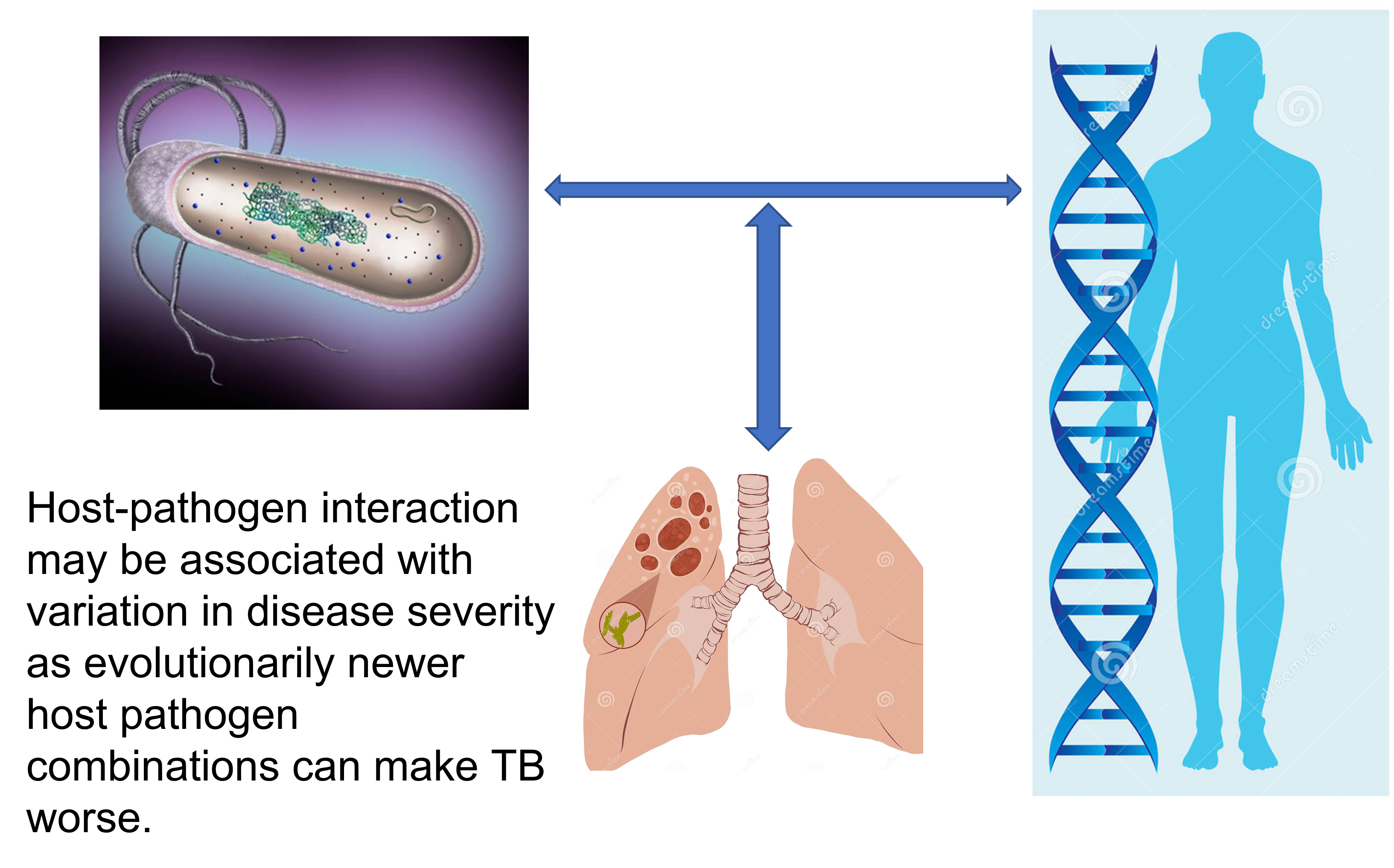Tuberculosis (TB) remains a major public health threat globally, especially in sub-Saharan Africa. Both human and Mycobacterium tuberculosis (MTBC) genetic variation affect TB outcomes, but few studies have examined if and how the two genomes interact to affect disease. We hypothesize that long-term coexistence between human genomes and MTBC lineages modulate disease to affect its severity. We examined this hypothesis in our TB household contact study in Kampala, Uganda, in which we identified 3 MTBC lineages of which one, L4.6-Uganda, is clearly derived and hence recent. We quantified TB severity using the Bandim TBscore and examined the interaction between MTBC lineage and human single nucleotide polymorphisms (SNPs) genome-wide, in two independent cohorts of TB cases (N=149 and N=127). We found a significant interaction between a SNP in PPIAP2 and the Uganda lineage (combined p=4x10-8). PPIAP2 is a pseudogene that is highly expressed in immune cells. Pathway and eQTL analyses indicated potential roles between coevolving SNPs and cellular replication and metabolism as well as platelet aggregation and coagulation. This finding provides further evidence that host-pathogen interactions affect clinical presentation differently than host and pathogen genetic variation independently, and that human-MTBC coevolution is likely to explain patterns of disease severity.

